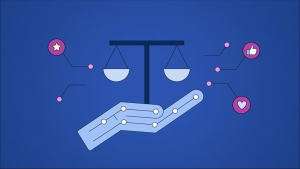New technologies and cybersecurity crisis: a perfect combination for the evil entrepreneur
Half of Latin American companies lack cybersecurity experts. The speed in the evolution of cyberattacks reveals the Achilles heel of today’s professionals. The cyber-world increases its complexity at every moment, with a dynamism worthy of science fiction movies: new updates, artificial intelligence, virtual assistants, crimes, and millions of emerging job possibilities. All of these factors can be somewhat overwhelming from a security point of view, so it is advisable to simplify the equation.
Imagine your computer as an extension of your home, where the password you choose will act as a key to enter this space, which will also be organized into rooms – folders – in which you can digitally store your most precious belongings, such as accounts. banking or family memories.
Now, if you think about the function that computers fulfill within companies, the scenario changes completely, because in this case it is no longer just personal information but at a corporate level, where there are so many keys to open the “door.” ” of this shared house as people who are part of the organization.

In this context, if you are having a coffee and receive a call from a neighbor, who fervently tells you that your home is being robbed, your first reaction will probably be to call the police. On the digital level, the procedure is the same, in the face of a possible attack a specialist capable of safeguarding our computer security must intervene, and this is where the importance of the cybersecurity professional is reflected in the foreground.
Cybersecurity professionals: the deficit that endangers thousands of companies around the world
Although we live in an era where computer security becomes relevant with every click, the global deficit of professionals specialized in this area has become a great concern for businessmen and an even greater opportunity for cybercriminals.
Faced with this panorama, the company specialized in cybersecurity Kaspersky has carried out a recent investigation that included the participation of more than 1,000 information security professionals (InfoSec) located in 29 different countries, including Mexico. This study made it clear that 48% of Latin American companies lack specialized cybersecurity personnel.
In dialogue with El Cronista, Jaime Berditchevsky, general director for Mexico at Kaspersky, specified that the estimated deficit in this country is 116,000 professionals, while in Latin America the stipulated number is 300,000. “The problem is not only the lack of resources, it is that this increases the opportunity to be attacked,” said the expert.
Along these lines, it is essential to understand that the role of the cybersecurity professional exceeds that of responding to attacks since they are also the main person in charge of preventing and minimizing these types of threats that, if they come to fruition, represent a loss of thousands and thousands of dollars for different industries. “The global impact of these cyberattacks is approximately $10.5 trillion per year,”
The genesis of the crisis: poor education that inserts inexperienced professionals into the labor market
The Mexican businessman emphasized that this crisis that companies are going through is related, in part, to another major problem: “The current resources or those that are leaving certain institutions do not have sufficient competencies.” As he explained, students do not have the opportunity to put their knowledge into practice while they are institutionalized, which leads to more than half of cybersecurity professionals making basic mistakes in their first jobs, such as not updating software or use of weak passwords.
In this sense, the report prepared by the company states that the evolution of cyber threats exceeds the speed of updating the different study plans. Likewise, it is specified that there is a shortage of instructors whose knowledge is updated to the point of being able to offer “timely and relevant content.” Faced with this, 46% of the professionals surveyed chose to increase their knowledge through additional technological education courses.
“One of the themes reflected in the study is that people, despite being given training, are seeking to study on their part, even if the investment comes out of their pocket,
From banks to governments: a crisis that does not discriminate by industry
Although this is a problem that affects all industries, the report revealed that there are sectors with a greater deficit of unfilled positions, ergo, a more obvious vulnerability. These are
- Government sector: 46%
- Telecommunications, media and entertainment: 39%
- Commerce and healthcare: 37%
- Hospitality, chemical, metallurgical and energy industries: 36%
- Factory and manufacturing industry: 34%
- IT industry: 31%
- Financial services: 27%
Obviously, the government sector is the most impacted. According to the specialist, “the digital transformation led to many segments of governments being digitalized, single windows were created and today we are learning that cybersecurity must also be implemented in these issues.”
Cybersecurity and responsibility: all for one or one for all?
Berditchevsky assures that one of the most critical points when talking about cyberattacks is the mismanagement of credentials. “You can have all the solutions in the world implemented, but if your credentials are not well protected, if they are not robust, if they are not changed frequently, if they are a piece of paper stuck behind the keyboard, you are in trouble. If someone manages to enter your system with the administrator credentials, you have already opened the door.
On the other hand, phishing, a type of online scam where cybercriminals send emails, text messages or even make calls pretending to be known entities to request personal data and steal information, also leads the podium of threats they must face. Mexican industries. Another report collecting data from June 2022 to July 2023 found that Mexico suffers an average of 4,000 phishing attacks per minute. According to the expert, the different types of malware and the use of social networks as a channel to affect people continue along the same lines.
Likewise, artificial intelligence is considered a digital grenade, although Berditchevsky affirms that since this system uses already existing malware, its behavior is still predictable, it represents a future concern for experts, since “today what applies you already know, but at some point you will have the ability to create something,” he said.
To combat these emerging threats, it is essential that the commitment reaches the entire organization chart. “Security is an issue for the company, not just one. We all have our responsibility in the issue of cybersecurity, we must train all staff and we must be collectively aware that it is both a work-related and individual issue,” stood out.
Little training and vulnerable companies: the deficiency that becomes a perfect business
When experiencing a cyber attack, stress and the need for quick responses can become a lethal cocktail if the company is not adequately prepared. The moment the information is encrypted and its legitimate owners no longer have access to it is when the cybercriminal requests money in exchange for returning the stolen data or, failing that, not disclosing it.
“The moment you fell you became a frequent customer,” says Berditchevsky and adds ” there are two types of customers: those who have already been attacked or those who are going to be attacked.” Faced with this, the expert explains that it is crucial to have proactive security and save important information outside the office as a backup. After all, incidents can be reduced if “you have all software versions up to date, apply the necessary patches and staff are clear about what to do and what not to do.”
In that sense, having cybersecurity built on the basis of trained resources, adequate tools and self-criticism of deficiencies at the organizational level, allows us to have a recovery plan in the event of an eventual attack, that is, it allows us to solve the problem without generating a new one. as it would happen if you agree to pay.
In order to deal with this crisis that is increasingly affecting more industries, the expert assured that ” companies are constantly looking for talents.” In addition, I have clarified that although the profession is well paid, the lack of specialists is such that organizations are opting for inefficient solutions, such as entrusting the total management of cybersecurity to a single person who only has knowledge of a specific area.
In conclusion, it is essential to highlight that the above-mentioned realities coexist and have become a problem that must be addressed: cybersecurity professionals are in short supply, the attackers’ illicit empire is growing at the cost of millions in damages, and solutions are urgently needed. In the words of Berditchevsky, “The cybercriminal is a businessman sitting on the wrong side of the business.” In this context, the question remains: will cybersecurity be able to keep up with the digital frenzy and finally become the “race of the future”?

With years of experience in technology and software, John leads our content strategy, ensuring high-quality and informative articles about Windows, system optimization, and software updates.












Post Comment
You must be logged in to post a comment.